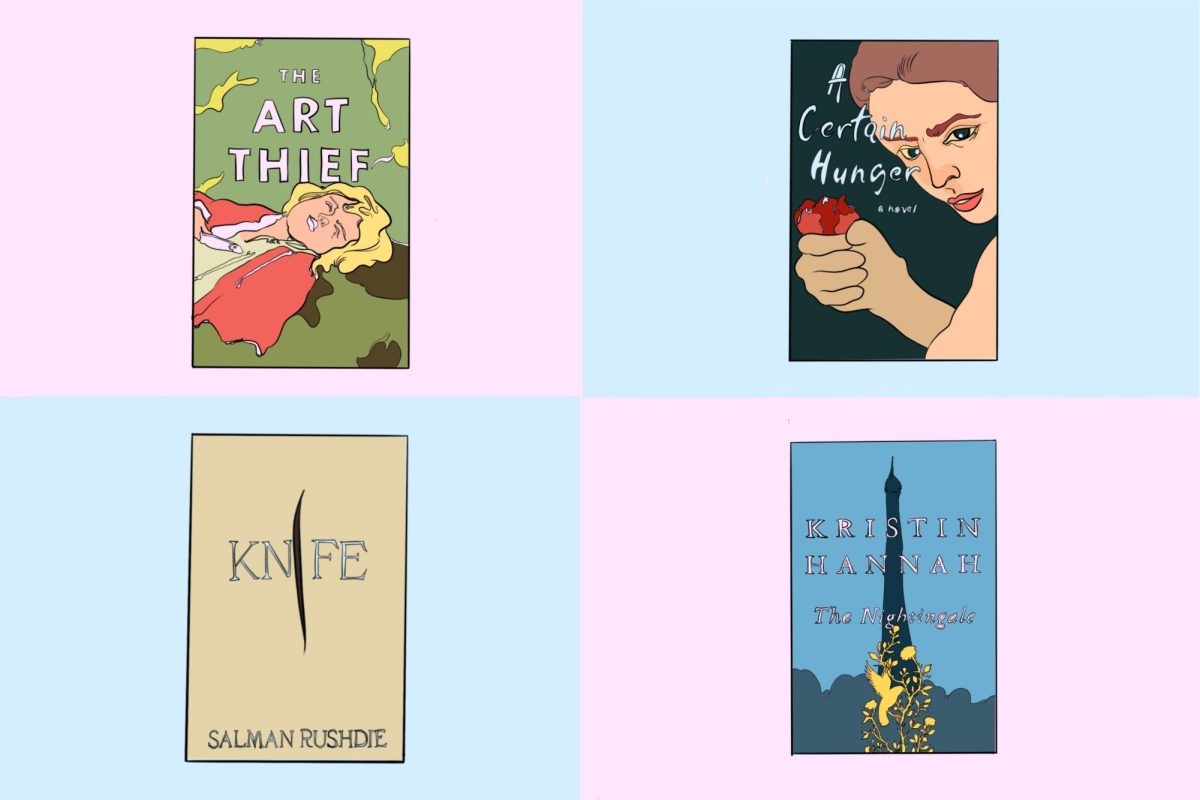“Knife: Meditations After an Attempted Murder” by Salman Rushdie
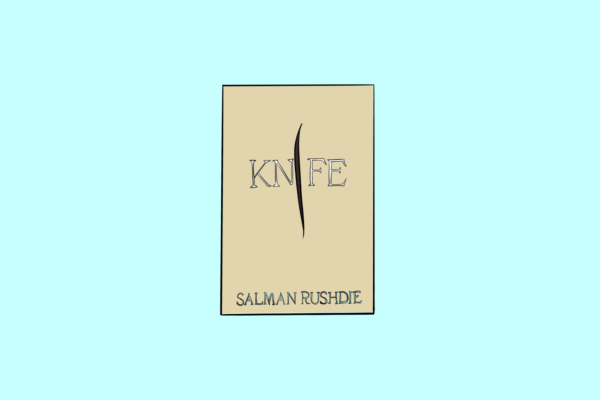
“Knife: Meditations After an Attempted Murder” is a short memoir recounting the immediate aftermath of the 2022 attack against writer Salman Rushdie and his healing process — both mentally and physically.
In 1988, Rushdie wrote the novel “The Satanic Verses.” In 1989, Iran’s Supreme Leader, Ayatollah Ruhollah Khomeini, declared that the text was blasphemous and ordered an execution, or “fatwa,” of Rushdie. In 2022, after escaping this horrifying fate for over three decades, Rushdie was preparing to give a talk on writer’s safety in Upstate New York when a man rushed toward him with a large knife, stabbing him 15 times. Prosecutors believe that this attack was an attempt at carrying out the fatwa, and Rushdie explains in “Knife” that when the incident happened, he immediately thought his fate had finally been sealed.
“So it’s you. Here you are.”
He emerged from the initial threat of the fatwa in an unexpected way, coming out of hiding only six years later, continuing to write and becoming an outspoken free-speech activist. He emerges from the stabbing in the same way, fearlessly presenting readers with his reflections on what happened, speaking against the authoritarianism that endangered him in the first place. The memoir excellently balances Rushdie’s activism with emotional stories from this difficult time of his life, touching on his loss of vision in one eye and the support he had from his loving wife. Still managing his typical intimate tone and humorous attitude, Rushdie knocked the much anticipated memoir out of the park.
— Alexa Donovan, Arts Editor
“The Art Thief: A True Story of Love, Crime, and a Dangerous Obsession” by Michael Finkel
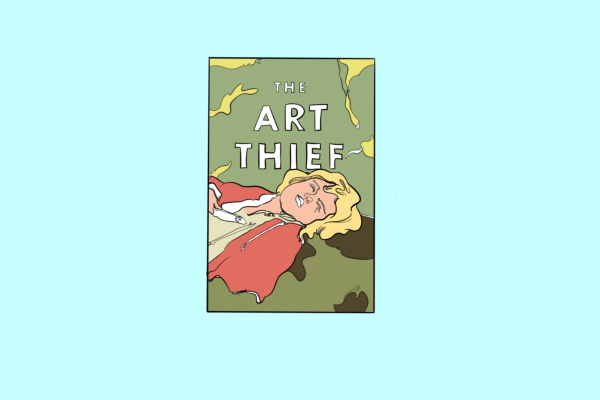
As a journalism and art history major, “The Art Thief: A True Story of Love, Crime, and a Dangerous Obsession” by Michael Finkel fulfilled my every wish to see my two passions intertwine.
This true crime narrative introduces the reader to Stéphan Breitwieser’s strange world. Through complicated and sometimes terrifyingly simple methods, Breitwieser manages to steal hundreds of artworks over an eight-year period. All across Europe, Breitwieser visits museums and cathedrals with his girlfriend, Anne-Catherine Kleinklaus, who functions as the lookout in his heists. However, Breitwieser never sells anything he steals. Instead, every work is banished to his bedroom in the attic of his mother’s home, where he can observe the art with great intimacy. Finkel’s detailed journalistic account excellently draws out Breitwieser’s increasing impulsivity and overconfidence in his heists.
Through every theft, I found myself holding my breath wondering if he was going to succeed, only letting out a sigh once I put the book down. Fair warning, after reading this book, you just might find your eyes curiously drawn to the screws holding paintings to walls and distracted guards as you walk through your next museum.
— Siobhán Minerva, Deputy Arts Editor
“A Certain Hunger” by Chelsea G. Summers
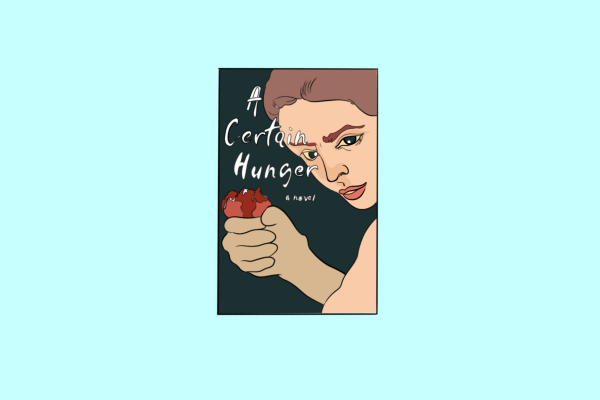
If you listen to “Maneater” by Nelly Furtado, this one’s for you.
Chelsea G. Summers’ debut novel, “A Certain Hunger” follows renowned New York City food critic Dorothy Daniels’ sexual exploits and dining-related adventures. However, there’s a twist — Dorothy figuratively and literally devours her lovers in the bedroom. After courting and killing her partners, she cooks their remains and serves them on a platter with olive oil and cheese.
The novel is formatted as if it is Dorothy’s memoir, recounting all of her kills and the recipes she made with the remains. Detailing the textures of a yacht owner’s tongue and an Italian man’s liver, Summers boasts an extensive — and almost scary — knowledge of human anatomy. But somehow, the novel balances these gory and violent descriptions with both charm and comedic timing.
The plot may seem disturbing and vile, but considering there have been piles of media made about clinically insane murderous men, I think it’s about time we got some female psychopath representation. Through skillful commentary and witty one-liners, Summers calls out readers’ implicit biases, asking the audience if they would be so scandalized by Dorothy’s crimes if she were a man. Who knew cannibalism could be such a feminist act?
— Annie Emans, Beauty & Style Editor
“The Nightingale” by Kristin Hannah
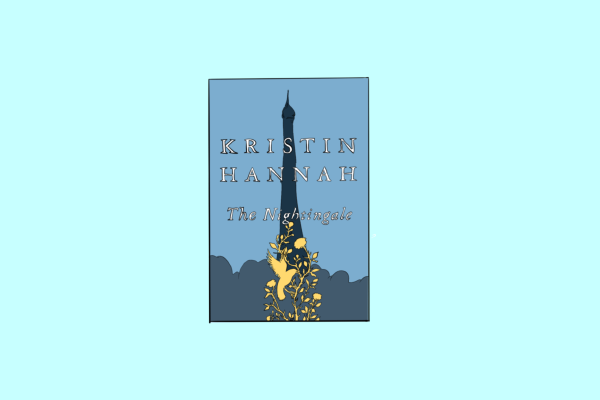
Kristin Hannah’s historical novel “The Nightingale” follows the lives of sisters Isabelle Rossignol and Vianne Mauriac in Nazi-occupied France during World War II. Isabelle, who is part of the French Resistance, becomes involved in efforts to smuggle Jewish children and fallen American fighter pilots out of France. She uses false identities and dangerous routes to evade the Nazis, risking her life to protect the vulnerable. Vianne remains in her German-occupied French village to protect her young daughter and await her husband’s return from war. Meanwhile, she participates in an undercover operation to protect orphaned Jewish children from Nazi rule. While the sisters’ drastically different versions of resistance clash, each is distinct and equally impactful.
Hannah beautifully explores the way that war impacts women, a topic seldom discussed in historical texts about the time period. She combines adventure, danger and love to create a beautiful narrative detailing the essential role of women in wartime with the joys and struggles of sisterhood.
— Maya Santiago, Staff Writer
Contact the Arts desk at [email protected].


























































































































































